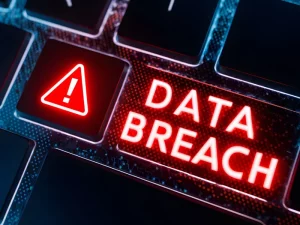Cyber threats are evolving, and businesses and individuals face an increasing risk of cyberattacks. While advanced security tools are crucial, they are not enough. Human behavior and proactive security habits are just as important. This is where cyber hygiene comes in. Just as personal hygiene prevents illness, cyber hygiene ensures a clean and secure digital environment, minimizing risks and protecting sensitive data.
What is Cyber Hygiene?
Cyber hygiene refers to the habits and practices that keep your data, devices, and online presence secure. It involves regularly updating software, managing passwords securely, and staying vigilant against online threats. By implementing good cyber hygiene, businesses can reduce their exposure to cyberattacks and strengthen their overall security posture.
Why Cyber Hygiene Matters
Many security breaches occur due to simple mistakes, such as weak passwords, outdated software, or falling for phishing scams. Even the most advanced cybersecurity tools can be ineffective without proper cyber hygiene. Here’s why cyber hygiene should be a top priority:
- Prevents Data Breaches: Poor security habits often lead to unauthorized access to sensitive data, resulting in financial losses and reputational damage.
- Reduces Human Error Risks: Many cyber incidents stem from user mistakes, such as clicking malicious links or using weak credentials. Regular training and awareness can mitigate these risks.
- Ensures Compliance with Regulations: Organizations must adhere to data protection laws such as GDPR and HIPAA. Maintaining cyber hygiene helps avoid legal penalties.
- Strengthens Overall Security Posture: A well-maintained security environment makes it harder for attackers to exploit vulnerabilities.
Essential Cyber Hygiene Practices
- Strong Password Management
Weak passwords are an open invitation to cybercriminals. Use complex, unique passwords for each account and store them securely with a password manager.
- Multi-Factor Authentication (MFA)
Adding an extra layer of verification makes it significantly harder for attackers to access your accounts, even if they steal your credentials.
- Software Updates and Patch Management
Cybercriminals exploit outdated software to gain access to systems. Enable automatic updates to keep your operating system, applications, and security software up to date.
- Secure Network Practices
Avoid public Wi-Fi for sensitive transactions and use a VPN to encrypt internet traffic, ensuring secure communication.
- Email and Phishing Awareness
Phishing attacks trick users into revealing personal information. Train employees to recognize suspicious emails and links to prevent data breaches.
- Regular Data Backups
Cyber threats like ransomware can lock you out of your data. Keep secure backups stored offline to ensure quick recovery from cyber incidents.
- Endpoint Security and Access Controls
Restrict access to sensitive information, ensure endpoint protection (such as antivirus software), and monitor devices connected to your network.
Cyber Hygiene is a Shared Responsibility
Businesses must prioritize cybersecurity awareness for employees and implement strong security policies to protect sensitive data. Meanwhile, individuals should treat online safety as an ongoing practice, just like personal hygiene.
Looking for advanced cybersecurity solutions? Terrabyte provides expert guidance and tools to help businesses build a strong security foundation.

